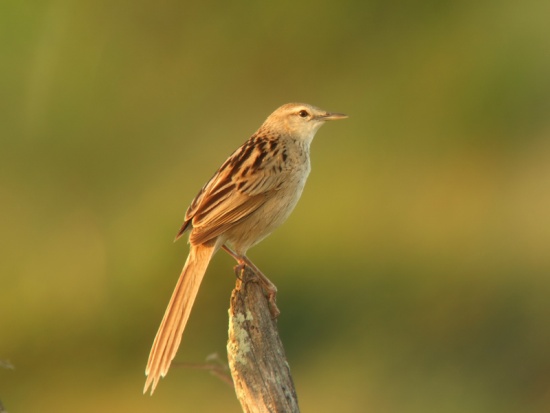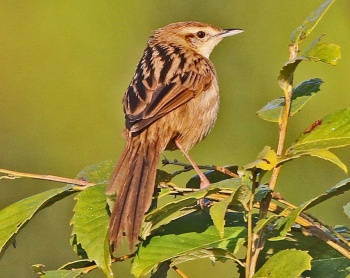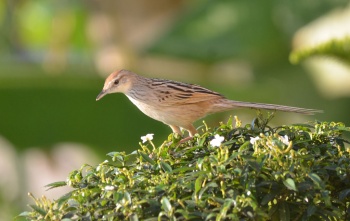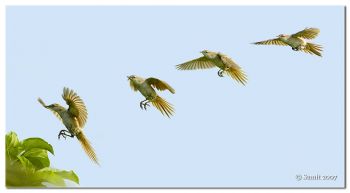(All sections now started. Pictures of subspecies. References. Incomplete gone) |
Sbarnhardt (talk | contribs) (Add Flight Composite by Sumit to Habitat section,) |
||
| Line 23: | Line 23: | ||
==Habitat== | ==Habitat== | ||
| + | [[File:Striated_Grassbird_Flight_SMIT.jpg|thumb|350px|right|Composite Flight Image - Nest to Perch<br />Photo © by {{user|Sumit|Sumit}}<br />Kolkata City, [[India]], March 2007]] | ||
Marshland and wet grassland with reeds and mace. | Marshland and wet grassland with reeds and mace. | ||
==Behaviour== | ==Behaviour== | ||
Revision as of 14:36, 22 April 2021
- Megalurus palustris
Identification
22–28 cm (8¾-11 in)
- Long graduated tail
Distribution
Asia: found in China, Tibet, Nepal
South Asia: Pakistan, India, Eastern and Western Himalayas, Bangladesh
Southeast Asia: Indochina, Myanmar, Laos, Vietnam, Cambodia, Thailand, Malaysia, Borneo, Brunei, Philippines, Indonesia, Greater Sundas, Sumatra, Java, Lesser Sundas, Bali
Taxonomy
Subspecies
There are 3 subspecies[1]:
- M. p. toklao:
- M. p. forbesi:
- Philippines (Luzon, Mindoro, Panay, Samar and Mindanao)
- M. p. palustris:
Habitat
Marshland and wet grassland with reeds and mace.
Behaviour
Diet
Their main diet consists of invertebrates such as spiders and many other insects and their larva.
References
- Clements, J. F., T. S. Schulenberg, M. J. Iliff, D. Roberson, T. A. Fredericks, B. L. Sullivan, and C. L. Wood. 2018. The eBird/Clements checklist of birds of the world: v2018. Downloaded from http://www.birds.cornell.edu/clementschecklist/download/
- Avibase
- Handbook of the Birds of the World Alive (retrieved March 2019)
Recommended Citation
- BirdForum Opus contributors. (2024) Striated Grassbird. In: BirdForum, the forum for wild birds and birding. Retrieved 13 May 2024 from https://www.birdforum.net/opus/Striated_Grassbird







